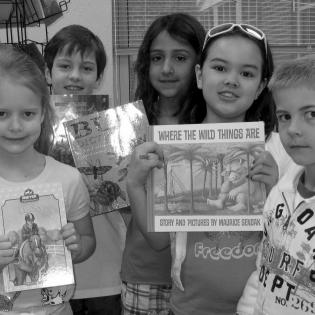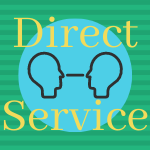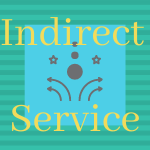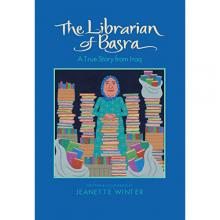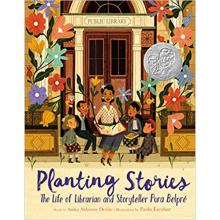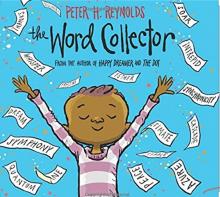Literacy
This toolkit guides youth, educators, group leaders, families, and community groups as they investigate the issue of literacy and prepare to take action. Contents:
- Current story
- Definitions
- Key questions
- Background
- Lessons and activities
- Resources in your community
- Project ideas and guide to service-learning
- Quotes
Promote Literacy through Relationships
Literacy is developed over time through experiences, practice, and relationships with books and people. If you have read a book that has taught you, moved you, or entertained you, share it with someone and let them see the light it let in for you. Your joy of the experience will be one piece of their literacy development.
"There is no such thing as a child who hates to read; there are only children who have not found the right book." - Frank Serafini
Share this example of action.
These middle school students learn to read a book in Spanish and English before they meet their first-grade reading buddies. Together they read and talk about the story and language. They laugh and build safe relationships. One eighth grader said, "When I was little, I was scared to interact, but then I realized they are just people, like us."
Reflect on the activities that helped the older and younger students talk about literacy and reading skills.
Definitions and Key Questions
See the handout below for Vocabulary and Key Questions related to literacy.
Definitions:
As young people build knowledge and passion for taking action, they can look up vocabulary and read more about the issues and needs. Here are some of the relevant vocabulary words.
- literacy
- literature
- genre
- poetry
- library
Key Questions for Learning and Service:
These key questions may guide investigation or generate inquiry about other areas of interest. The best service-learning experiences follow the passions of youth and local concerns. Here are some sample questions:
- Where do people in your community get books to read for free?
- What do you remember about learning to read? Who helped you? What steps to reading or understanding the importance of books do you remember taking?
- Why is it important to have libraries in a community? What does your local library do?
- Does your community have resources, such as special education programming? How do these resources help the community?
Background Information
Share these background resources to inspire and inform youth about literacy.
- These Learning to Give lessons explore books and reading.
- Reading Rockets provides reseach, guides, and resources related to teaching reading. There are blogs and book suggestions.
- Do Something provides facts about literacy
- Reading Is Fundamental (RIF) provides facts, resources, and ways to get involved.
- Dolly Parton's Imagination Library is one of the leading literacy promotion entities in the country. Dolly Parton's project gives thoussands of books away to kids every year. Check availability in your area.
- You may run across a Little Free Library in your community. This small shelf of books invites readers to take a book or leave a book. Here's one story of a young person who set up libraries.
- Get free books online through Craigs List, Freecycle, and Amazon. Your local library probably gets rid of books regularly, either for free or a small cost.
- Immerse your children in pre-K through fifth grade in bilingual reading by signing up for Read Conmigo, a fully digital platform.
- For older kids, Project Gutenberg has a wealth of free downloads available.
Literature Guides for Reading Together
The shared experience of reading a book is powerful in many ways. Children learn reading, listening, and comprehension skills, while together you celebrate the joys and sorrows that good literature presents. Literature brings us closer and introduces real issues and broadens experience in a safe environment. Reading with someone younger or older is an opportunity for developing relationships and respect across generations or grade levels! Reading Tutor Guide
Learning to Give literature guides combine selected literature with thought-provoking discussions and activities that teach about giving and civic engagement. The books we selected for our literature guides have themes of empathy, respect, kindness, inclusion, perseverance, responsibility, generosity, and citizenship. Browse our collection or search by specific title here.
Community Resources
For meaningful service-learning projects with long-lasting impact, connect youth to people and nonprofit organizations in the local community related to their service area of interest. This is an opportunity for a field trip (may be virtual) or for an expert to teach about issues and what is already being done. Youth may write, call, or interview experts about needs and partnerships.
- Libraries
- Cultural centers
- Local bookstores
- Local writers
- Universities, colleges, or other schools
- Homeless shelters
- Daycares
- Community centers
- Local literacy, ESL and educational nonprofit organizations
Project Ideas
There are four types of service. The ideas below are grouped by these types. The best service-learning experiences follow the passions of youth and local concerns. These are provided to start conversations and ideas.
This overview Guide for Planning Service-Learning describes each step of the process and actions to take.
This blank chart for Planning Service-Learning helps youth prepare for who does what for maximum service and learning impact
- Hold a literacy game night at the community library.
- Establish a reading buddies partnership with another grade level. Use LTG literature guides and this Reading Tutor Guide.
- Volunteer at a community literacy agency to teach their clients basic reading and literacy skills. Contact the agency to find out their needs.
- Hold a community information and reading night to talk about the foundations of literacy and read books together.
- Encourage literacy by holding a read-a-thon book experience, inviting parents and youth from the neighborhood to come and hear books read to them by young people. Solicit new or gently used books from the community to give away to the children who attend.
- Young people could read aloud to children and play language games to help them develop a love of reading. Contact shelters and preschools in advance to coordinate. Service Sparks: Joy of Reading
- Youth write and perform plays or skits inspired by books that they've read. They can perform for the community or younger classes.
- Organize a collection drive to ask neighbors and school families to donate books for children and families that need more books.
- Host a Little Free Library in your community. Story about one community.
- Design and create literacy flash cards to help younger children read. Distribute them to needy schools or shelters.
- Encourage youth to join summer reading programs. Many libraries offer this each summer.
- Perform a puppet show at a library or local community center. The puppets may perform a story from a book or an original humorous show that promotes reading. Youth could write their own stories focused on reading and literacy.
- Create buttons or pins that promote literacy and reading.
- Invite a local young adult or children's author to a community event. Have them talk about their experiences as a reader and writer.
- Research the factors that build literacy in young children. Base a service project on what is learned.
- Research literacy rates and prevalence of different languages spoken in your community. Design questions to find out what is needed. Present the findings on the facts and what is needed.
- Conduct a library audit to determine the representative diversity present and make a goal to build the library in the areas there are gaps. Equity in Your Library Simple Safe Service
Literature Guides
The Librarian of Basra literature guide provides before, during, and after-reading discussion questions. A Muslim woman in Iraq saved 30,000 library books from bombing during the war in the Middle East. She organized her community to shelter books in their homes until they could rebuild the library safely after the war.
Planting Stories literature guide explores the importance of our maintaining cultural stories and the power of listening to and respecting the diverse stories our communities.
The Word Collector literature guide demonstrates the joy of words and how one boy inspires a community with his generosity with words that help him brighten the world with his goodness.
Quotes
Ways to use quotes with youth: Use it to spark conversation. Write about its meaning or do research on the person or topic. Represent the quote visually and display in social media. Tell whether you agree or disagree with the quote. Rewrite it to speak for you.
“There are many little ways to enlarge your child's world. Love of books is the best of all." - Jacqueline Kennedy
"To learn to read is to light a fire; every syllable that is spelled out is a spark." - Victor Hugo
"You may have tangible wealth untold; caskets of jewels and coffers of gold. Richer than I you can never be. I had a mother who read to me." - Strickland Gillilan
"Whenever you read a good book, somewhere in the world a door opens to allow in more light." - Vera Nazarian
“With words at your disposal, you can see more clearly. Finding the words is another step in learning to see.” - Robin Kimmerer
